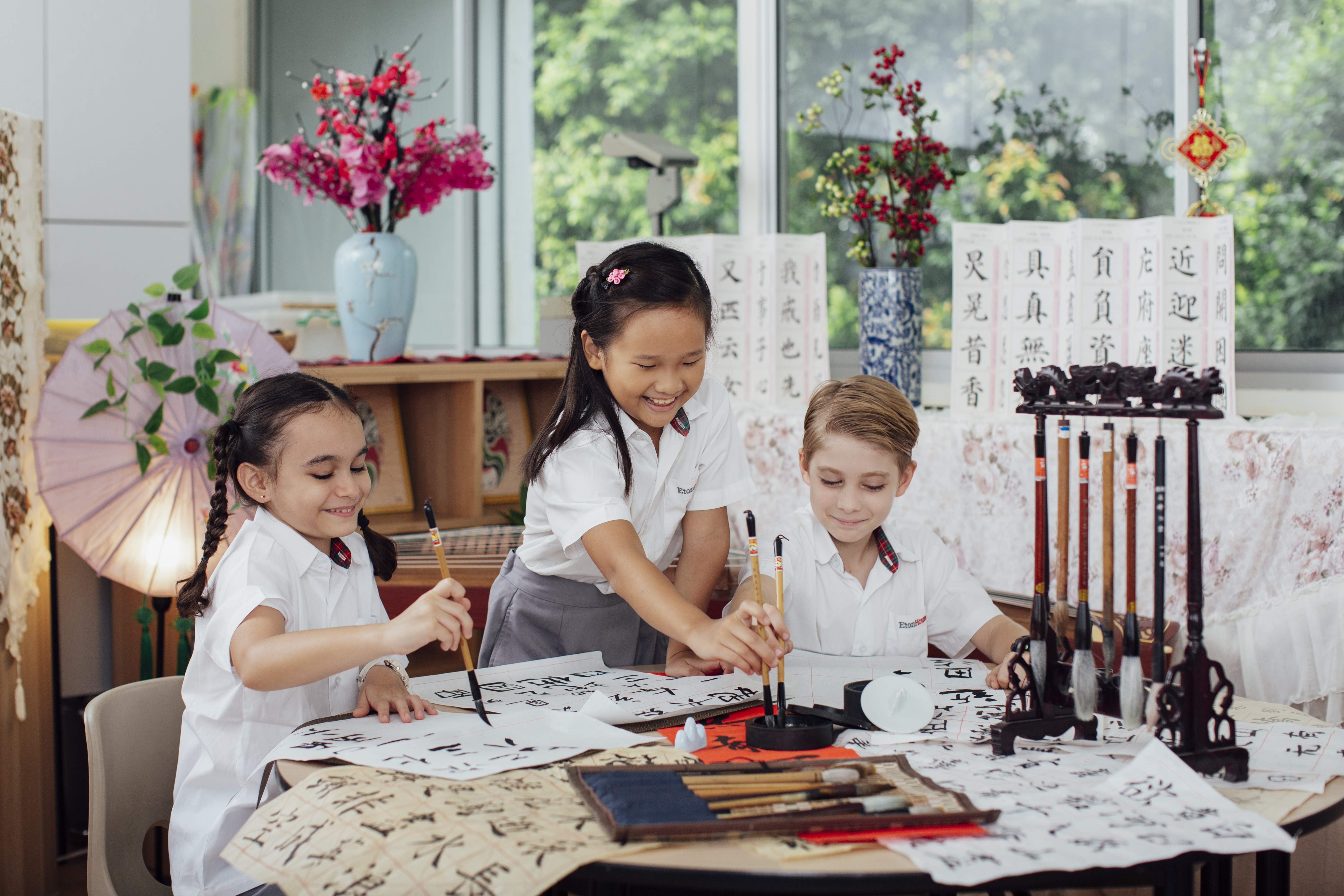-1.png)
EtonHouse Singapore
In a webinar held in collaboration with Little Steps Asia, we talked about developing bilingual skills in young children. Here, we picked out some essential factors to consider while choosing a bilingual programme for your child. You can also watch the virtual Facebook Live session here.
How should parents choose a bilingual immersion program?
Every parent wants a head start for their child. You need to consider the long term goals for your child and encourage them to develop a genuine interest in the language as well as a deep appreciation of the language and culture. A bilingual immersion program, therefore, makes sense for parents committed to the multi-year process needed to develop bilingualism, biliteracy and bi-cognition in children. Once your child is on a language immersion path, the environment must be maintained. It goes with the saying, “use it or lose it.”
Exposure
Exposure is the key to helping children learn and get to know the language. You can start by modelling the interest as a family from your home environment. For families who already speak Chinese, it is easy. For families who are not able to, you can begin by tuning in to Mandarin songs on the radio. The Singapore radio stations have a few bilingual programmes in the mornings. Mandarin is a tonal language, hence it is important for a child to hear the sounds in his or her environment. The wonders of technology have made it easier than ever before. There are many audiobooks available online which can be used for storytime.
Extracurricular activities
![Copy of [primary] 2016 broadrick 3rd Inter-School Chinese Competition 613 (1024x684)](https://parenting.etonhouse.edu.sg/hs-fs/hubfs/Copy%20of%20%5Bprimary%5D%202016%20broadrick%203rd%20Inter-School%20Chinese%20Competition%20613%20(1024x684).jpg?width=275&name=Copy%20of%20%5Bprimary%5D%202016%20broadrick%203rd%20Inter-School%20Chinese%20Competition%20613%20(1024x684).jpg)
If you are not able to provide a language-rich environment at home, it would be helpful to engage your child in extracurricular activities. It is important to understand the focus of these activities. The approach should be made flexible and spontaneous for your child. E.g. Speech and drama or art classes in Mandarin.
What sets the EtonHouse bilingual programme apart?
- Differentiated instruction - Our teachers continuously assess and differentiate instructions to benefit each individual child. Our content instruction requires skilful planning and intentionality from the teachers. Teachers use carefully chosen vocabulary to teach a given topic from a unit of inquiry. For example, when the class is inquiring into certain topics related to concepts of Physics or Biology, a direct translation of the vocabulary can be too advanced for the children. The information provided is therefore adapted to the children’s proficiency levels that is comprehensible to them. The result does not simplify the content, but it is structured with a set of targeted vocabulary and grammatical patterns with creative input. Instructions from teachers are also carefully scaffolded and contextualized so that children acquire knowledge of both the language and content.
- Mandarin is seen as a living language - We believe learning Mandarin is a life skill; a way to communicate with others and a chance to learn and understand a different culture. We encourage the usage of Mandarin in many ways rather than just seeing it as a curriculum subject. In our programmes, we develop strong Mandarin language skills while integrating cultural experiences, thus laying a bilingual and bicultural foundation in the children. Apart from in-class learning experiences, children are given opportunities to participate in Chinese cultural performances and experiences that allow them to practice the language in the real world. Our goal is for the children to view Mandarin as something to be enjoyed, not endured.
There are many different types of curriculum in Mandarin being offered. What are the main differences between them?![Copy of [preschool] 2019 RW chinese writing-1](https://parenting.etonhouse.edu.sg/hs-fs/hubfs/Copy%20of%20%5Bpreschool%5D%202019%20RW%20chinese%20writing-1.jpg?width=258&name=Copy%20of%20%5Bpreschool%5D%202019%20RW%20chinese%20writing-1.jpg)
The progressive learning of Mandarin is structured across the different year levels to ensure we build continuity. Ages 3 to 6 years are the formative years for learning a new language. Our immersion programmes begin as early as Pre-Nursery at our preschools, and the focus is on building the interest and foundation for the language. The approach is spontaneous. Language is encouraged through daily conversations, songs, stories and imaginative play. As children gain foundational knowledge of the spoken and written language, the focus of our primary programme is to build on their fluency in using the language. They are given opportunities to express their ideas, thoughts and expand on their vocabulary. This gives families the option to choose the track best suited for their child.
Early years:
- Mandarin immersion programme
- Bilingual programme
- A mainstream programme with Mandarin taught as a second language
Primary and above:
- Bilingual programme
- Bilingual immersion programme
- A mainstream programme with Mandarin being the second language
Our programme goal is to develop bilingual and bicultural global citizens who are confident in using Mandarin in everyday life.
Four of our EtonHouse pre-schools offer a Mandarin Immersion Programme where the curriculum is delivered entirely in Mandarin with native speakers to give your children a strong foundation in the language:
How effective are our programmes?
We have received feedback and testimonials from parents that their children have since used Mandarin in everyday events, such as speaking to other children at the playground, helping their parents communicate with taxi drivers, etc. Children are also driven by their interests and are equipped with the skills to participate in language competitions organised by Crestar. They have participated in performance events such as the Singapore Youth Opera Showcase organised by the Singapore Chinese Cultural Centre. In the 2021 Youth Chinese Test, EtonHouse Broadrick’s Bilingual Immersion Programme students achieved a 100% passing rate, with 30% of the students attaining full marks!


